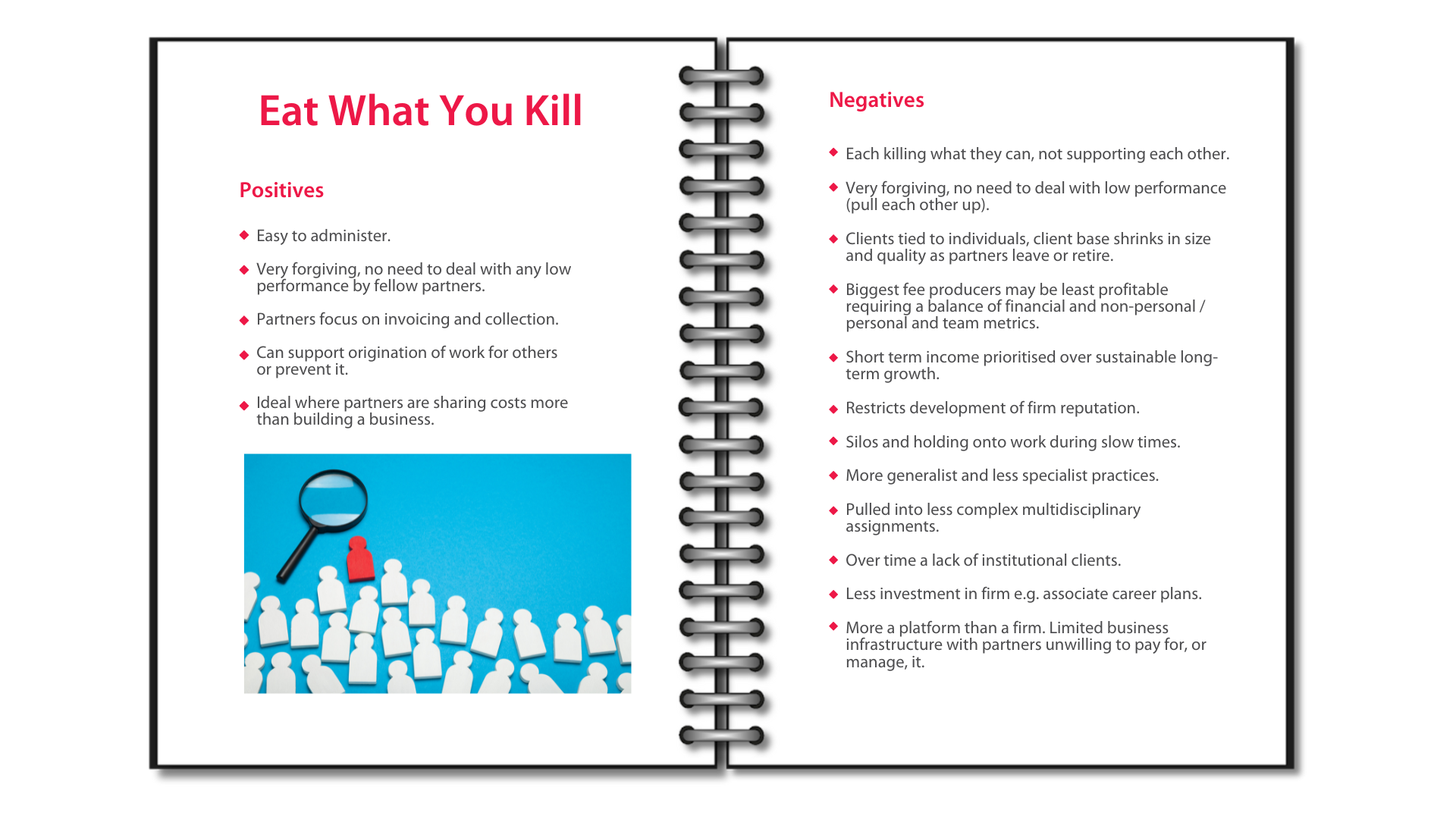The people challenges facing businesses as we emerge from Covid only serve to highlight the many tensions within traditional approaches to reward and remuneration.
Going forward, how should we be defining “success” within partnerships and adopting approaches that can better deliver on our promises to our people and clients?
During workshops at the Møller Institute, we regularly ask leadership groups: “What are the behaviours you require of an ideal Partner?”. “Making money” is typically the first response. With some prompting, groups then develop a long shopping list of key behaviours such as investing in people, building a sense of direction and purpose, developing stronger firm-wide client relations and introducing successful management systems.
As a follow-up, it is always interesting to ask: “What Partner behaviours would you say that you are currently rewarding?” Over the years, it has been surprising how many will again answer “making money”.
As organisations review and redefine “success” in this new era, it is clearly more important than ever to pose the question, “do partnerships get the behaviours they really need for success or the behaviours they reward?”
People at the Top of the Agenda
The majority of our work is with law firms, where recent research shows that four of the top five threats to profitability are people-related (lawyer recruitment and retention; poaching of staff by competitors; associate salary increases; under-performing lawyers and (at fifth) competition between law firms over fees).
In 2022, talent is top of virtually every Managing Partner’s agenda. The current war for talent is manifesting in extraordinary demands for money, and many Managing Partners we work with are concerned that they face a two-part profit squeeze with clients demanding lower fees and Associates and Partners demanding higher salaries and Profit per Equity Partner (PEP).
We have been researching with law firms across five continents the challenging question of how best to recognise and reward the law firm’s only real asset – its people.
The traditional approaches to Partner pay – Eat What You Kill, and traditional Lockstep have strengths and weaknesses. However, as shown in our most recent survey of over 200 law firms globally, neither optimises the wider behaviours which unlock the long-term value of tomorrow’s partnership. When individual agendas drive the business, everything is up for grabs. Those who can shout loudest (often the “big beasts” bringing in the biggest money) often get what they want – regardless of the best long-term interests of the partnership.
From our research, every firm needs to find its own way of answering these issues – and although the challenges are similar, the solutions will inevitably be unique. We have also seen firms that have swung (for example) from traditional lockstep to a pure Eat What You Kill – with a dramatic decline in the firm’s collegiality, trust in leadership and the partnership’s culture.
Performance Management
The law firm market is becoming more complicated and less certain, and firms are becoming more open to adopting new approaches. We are therefore seeing a higher number of law firms reviewing what they see as “success” and how best to achieve that.
Our research shows that a purely financial-based reward system does not maximise long-term value at a law firm. It goes without saying that it is vital for Partners and Associates to deliver this year’s financial success for the firm – that is a basic requirement. But it is not enough.
Financial results are simply the outputs of the successful leadership of an organisations clients and their people. The traditional focus on financial results within a twelve-month PEP period does not create longer-term value and – crucially- differentiated competitive advantage.
Crucially, this builds the foundation for a law firm to grow building more opportunities for its people, and virtuous circle of more profits, more investment, and more rewards.
To build the law firm beyond the twelve-month PEP horizon also requires a clear strategic vision of where Partners want the firm to be and, most importantly, the behaviours and personal accountabilities required to achieve that. This co-creation of strategy (as opposed to a top-down, Managing Partner-imposed strategy) also builds buy-in and ownership. This both makes for easier strategy implementation and higher Partner and Associate commitment to the firm – resulting in fewer regretted people losses.
Strategy clarity here allows the setting of a reward and recognition system that flows directly from the strategic vision co-created and co-owned by the partnership.
Our research in the field shows that this often results in a new, hybrid reward and recognition system, rooted in the values and “special sauce” of each unique law firm, and agreeing specific objectives for Financial Performance (e.g. profit/ contribution, revenue, profitability and cash flow) ; People (e.g. “X will be mentored so that she will be ready for partnership by 2024”); Clients (e.g. “I will cross-sell Litigation and Commercial into Client X by end 2023”), and recognising Leadership initiatives- whether a Management Committee role or leading a specific initiative.
Best practice is that these objectives should always be “SMART” (Specific, Measurable, Achievable, Relevant, and Time-Bound) and marinated in the values of the firm.
This is typically weighted into four quadrants – e.g. Financial 50%, People 20%, Clients 20% and Leadership 10%. It is important to stress that the weighting and all aspects here are tailored to each law firm.
This can then be used to set specific career development objectives- with real clarity about what is needed for an Associate to make Partner and what a Partner must do to progress (typically through clearly calibrated career bands).
‘Law Firms, Talent and Reward’: Conclusion
In conclusion, this approach can avoid the extremes of traditional Lockstep and Eat What You Kill systems and the challenge of getting “the behaviours we reward and not those we require”.
It creates a purpose for a partnership that translates into a Performance Management system that is not “all about the money” and creates the winning firms for the next decade- aligned with the ‘key ingredient’ that made the partnership successful in the first place. Money can’t buy me love? It would appear this message from The Beatles is truer than ever, although some organisations are still playing catch-up.






